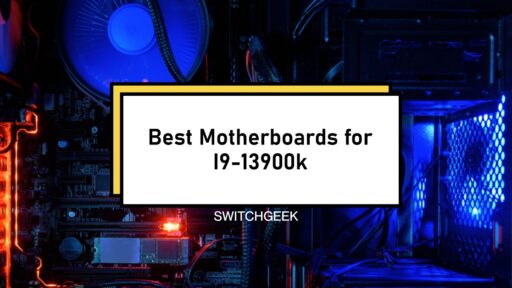In the world of desktop PC processors, two companies have remained dominant for years: Intel and AMD. As the brains behind your computer, the CPU (Central Processing Unit) plays a critical role in ensuring that your system runs efficiently and effectively. Choosing between these two giants is often a difficult decision for consumers, as both brands offer a wide range of options catered to various user needs.
This article aims to provide an in-depth comparison of AMD vs Intel CPUs to help you decide which is better for you in 2023. We will focus on key factors such as performance, gaming capabilities, productivity and content production, cooling and efficiency, platform differences, price comparison, power consumption, and more.
Similarities between AMD and Intel CPUs
Both AMD and Intel produce CPUs that are compatible with the latest Windows operating systems (including Windows 11) and applications. They also offer processors geared toward high-end gaming performance. Furthermore, both companies provide mid-range options that cater to users who don’t require extraordinary processing power but still need a reliable CPU for everyday tasks.
Performance Differences
The fastest desktop processor currently on the market is the AMD Ryzen Threadripper Pro 5995WX, boasting impressive specifications such as 64 cores, 128 threads, and a base clock speed of 2.7 GHz. On the other hand, the fastest CPU from Intel is the Core i9-13900K with its i9-11900K predecessor offering 8 cores, 16 threads, and a base clock speed of 3.5 GHz.
For standard desktop processors that cater to most consumers’ needs without breaking the bank or consuming excessive power resources, we can compare AMD’s Ryzen 9 7950X with Intel’s Core i9-13900K.
Gaming Performance Comparison
When it comes to gaming performance in this day and age, the top CPUs for gamers from both companies are the Intel Core i9-13900K and the AMD Ryzen 7 5900X3D. Both processors provide exceptional gaming capabilities, with the Intel model generally offering better single-core performance while AMD’s CPU shines in multi-core processing.

Productivity and Content Production Comparison
For users who prioritize productivity and content production tasks such as working with Adobe Creative Cloud suite programs or Microsoft Office applications, choosing a CPU that balances price and performance is crucial. In this category, Intel’s mid-range Core i5-13600K stands out as a reliable option for most users who don’t require extreme processing capabilities.
Cooling and Efficiency Comparison
Efficient cooling of your CPU is essential to prevent overheating and maintain optimal performance. The Thermal Design Power (TDP) of a processor is measured in watts and provides an indication of how much heat it generates under maximum load.
AMD processors have historically been known for their efficiency improvements over time, allowing them to provide higher performance per watt compared to their Intel counterparts. This advantage translates into better thermal management, reduced power consumption, and potentially lower overall system temperatures.
Platform Differences: Raptor Lake vs Ryzen 7000 Series
When comparing the latest platforms from both companies – Intel’s Raptor Lake series CPUs versus AMD’s Ryzen 7000 series – there are several factors to consider:
- DDR4 support: Both platforms support DDR4 memory but offer varying degrees of DDR5 support depending on the specific CPU and motherboard used.
- Overclocking capabilities: Historically, Intel has had an edge when it comes to overclocking potential due to features like its K-series unlocked multiplier CPUs; however, recent advances in AMD’s technology have made it much more competitive in this area.
- Motherboard options: Both companies offer a wide range of compatible motherboards; however, each platform requires different chipsets that may affect overall system cost and compatibility with other components.
- Longevity of platform support: AMD has a reputation for its long support cycles, making it easier for users to upgrade their CPUs without needing to replace the motherboard.
Price Comparison
In terms of pricing structures, both Intel and AMD offer a wide range of options that cater to various budgets. However, it’s essential to note that adopting DDR5 RAM and compatible motherboards can significantly impact your overall system cost. This factor should be taken into account when comparing processors within the same price range.
Power Consumption Comparison
Power consumption is an important consideration when choosing a CPU, as it directly affects heat generation and cooling requirements. While both companies have made strides in power efficiency, AMD is generally known for its more energy-efficient designs.
Factors Beyond CPU Choice for Gaming Performance
It’s essential to remember that several factors beyond your CPU choice contribute to your overall gaming performance. The motherboard, graphics card (GPU), and RAM all play vital roles in ensuring smooth gameplay and high-quality visuals.
Conclusion: Choosing Between AMD vs Intel in 2023
Ultimately, choosing between an AMD or Intel processor in 2023 will come down to individual preferences regarding factors such as gaming performance, future-proofing considerations, budget constraints, and specific user needs.
For gamers looking for the best possible gaming experience at any cost, the Intel Core i9-13900K offers top-of-the-line single-core performance. However, if multi-core processing power is crucial for productivity or content creation tasks, AMD’s Ryzen 7 5900X3D may be a more suitable option.
When considering budget constraints or seeking a more energy-efficient system without sacrificing too much performance, AMD processors may have the edge over Intel offerings in some cases. As always, thorough research on specific products and user needs will help inform the best decision for each individual consumer.




